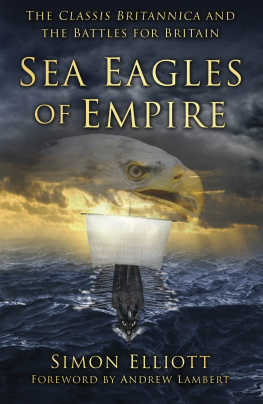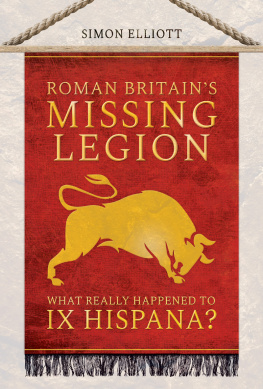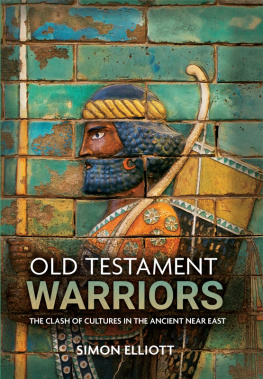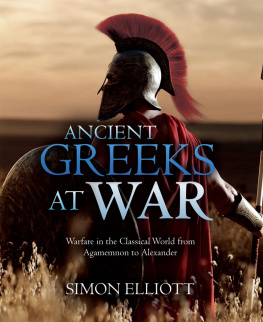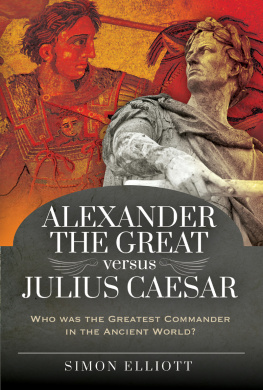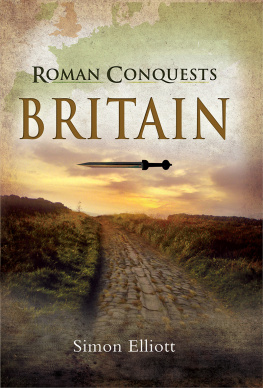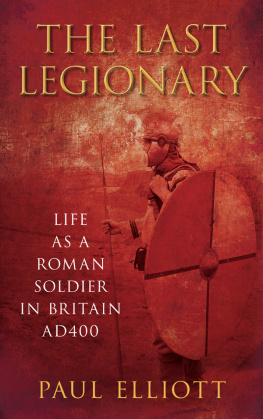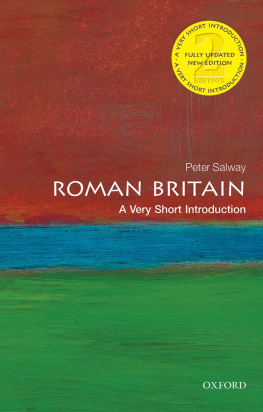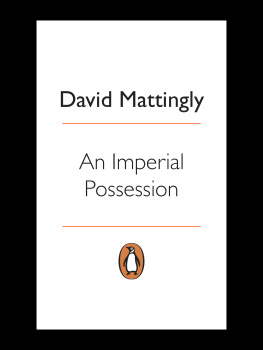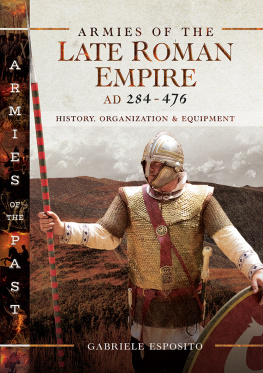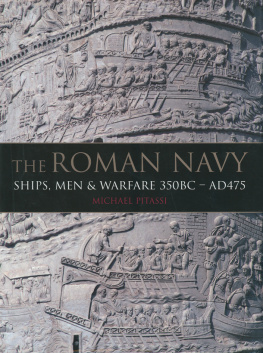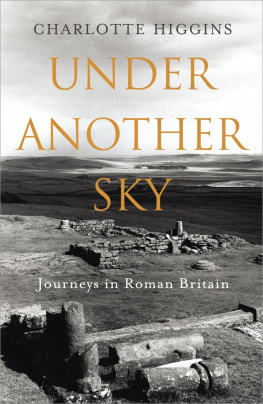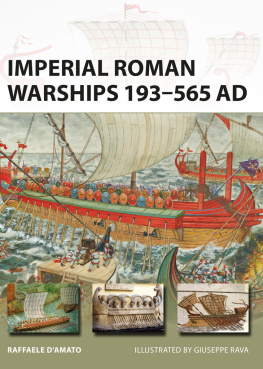Contents
Guide

About the Author
Dr Simon Elliott is an award-winning and best-selling historian, archaeologist and broadcaster. He has published fifteen books to date on themes related to the classical world, is widely published in the historical and archaeological media, and frequently appears as a presenter and expert on broadcast media around the world. He is a trustee of the Council for British Archaeology, ambassador for Museum of London Archaeology, guide lecturer for Andante Travels and Hidden History Travel, and president of the Society of Ancients. Simon is also a PRWeek Award-winning, highly experienced communications practitioner who began his career as a defence journalist.
Also by Simon Elliott
Alexander the Great vs Julius Caesar: Who Was the Greatest
Commander in the Ancient World
Ancient Greeks at War
Empire State: How the Roman Military Built an Empire
Julius Caesar: Rome Greatest Warlord
Old Testament Warriors
Pertinax: The Son of a Slave Who Became Roman Emperor
Ragstone to Riches
Roman Britains Lost Legion: Whatever Happened to legio IX Hispana
Roman Britains Pirate King
Roman Conquests: Britain
Roman Legionaries
Romans at War
Septimius Severus in Scotland

To my mum and dad for encouraging a love of all things Roman, and to Sara, Alex and Lizzie for their love and patience!
Front cover illustrations: Simon Elliott, Martin Latham and iStockphoto.
First published 2016
This paperback edition first published 2022
The History Press
97 St Georges Place, Cheltenham,
Gloucestershire, GL50 3QB
www.thehistorypress.co.uk
Simon Elliott, 2016, 2022
The right of Simon Elliott to be identified as the Author of this work has been asserted in accordance with the Copyright, Designs and Patents Act 1988.
All rights reserved. No part of this book may be reprinted or reproduced or utilised in any form or by any electronic, mechanical or other means, now known or hereafter invented, including photocopying and recording, or in any information storage or retrieval system, without the permission in writing from the Publishers.
British Library Cataloguing in Publication Data.
A catalogue record for this book is available from the British Library.
ISBN 978 0 75096 931 4
Typesetting and origination by The History Press
Printed and bound in Great Britain by TJ Books Limited, Padstow, Cornwall.
eBook converted by Geethik Technologies

CONTENTS
FOREWORD
For Imperial Rome, the greatest empire of them all, the sea was an essential connecting medium. The grain supply from Egypt and North Africa, the strategic mobility that enabled the legions to deploy quickly to meet new threats and the trade that funded the Universal Monarchy of the Ancient Mediterranean all depended on sea communications. And yet the Romans remained profoundly Continental by culture, so fearful of the sea crossing to Britain that they needed religious sites at both ends of the short passage. Their navies reflected this reality.
Rome won much of the empire with powerful naval forces, focused on combat and control, using great fleets of polyremes to demolish the rival maritime empires of Carthage and the Hellenistic world. Then the Romans abandoned their fleet and left the seas to traders and pirates. A brief resurgence of naval warfare culminating in the decisive victory at Actium saw the establishment of standing fleets, reconfigured for support roles, small cruisers and transports replacing specialised battle galleys. Imperial Roman sea power was responsive, and reflected a Continental world view: naval forces would move, support and sustain the legions, develop large-scale economic activities and secure trade routes.
As the outermost element in Roman power, the force that circumnavigated the British Isles, and helped pacify the Highlands, the Classis Britannica, has long stood in need of a dedicated history. In this book Simon Elliott provides the essential combination of ancient scholarship, archaeology and sea power theory to recover and interpret the First British Navy extending the reach of Roman power and the antiquity of British maritime exceptionalism.
Andrew Lambert
Laughton Professor of Naval History and War Studies
Kings College London
2016
INTRODUCTION
The Roman war machine comprised both land and naval forces. In the case of the former one can look to the well-known and famous legions and their auxiliaries, and later in the Empire comitatenses, palatina, limitanei and foederates. Much less understood though are the naval forces, particularly the regional navies that participated actively in most military operations and policed the seas and rivers for much of the history of the Empire. Until the middle of the third century, in a British context this navy was the Classis Britannica, a fighting force in its own right. This book will tell the story of this illustrious naval force in their iron- and bronze-beaked galleys and laden transport ships, and specifically detail their exploits in defeating the Emperors enemies while keeping his peace around the islands of Britain.
A reasonable question to ask would be, Why is it relevant now to write a history of Britains first navy? The answer lies not with classical but with modern history. For the first time in two generations naval power is coming to the fore again in the context of the overall capability of the UK armed forces. After boots on the ground deployments in both Iraq and Afghanistan in the 1990s and 2000s, which ultimately lacked public support (though not to the detriment of support for the armed forces), and in an increasingly uncertain world geopolitically, priorities in regard to the UKs defence and foreign policy have turned full circle. Now, instead of deploying the British Army in major operations abroad, attention is focusing again on the Royal Navy and RAF as the means of executing expeditionary foreign policy. To my mind it is the former that is set to benefit most from this new level of attention, with two new aircraft carriers set to enter service in the next few years, a new fleet of frigates in the same time scale, and a new generation of nuclear-powered submarines to carry the nuclear deterrent on the cards. In short, naval power and thus naval history in the UK are back in vogue, and in that context it seems only right to look at the beginnings of naval power in the islands of Britain.
A second and equally valid question might be, Why is there a need for a new appreciation of the Classis Britannica? In the first instance, while there is a plethora of excellent works on the market aimed at both academic and popular audiences regarding Roman military power, such works tend to be dominated by a focus on land-based warfare. Sitting here in my office researching and writing this work surrounded by piles of such publications, I know this first hand! There are, of course, some excellent works on Roman naval military capability, both old and new. Further, in some of the general works on the Roman military, naval warfare is well referenced, though usually as an addition to the much wider appreciation of land forces and with a focus on maritime conflict in the later Republic. Yet even within this limited canon regarding Roman naval power, after extensive research I have yet to find a work specifically focusing on the

